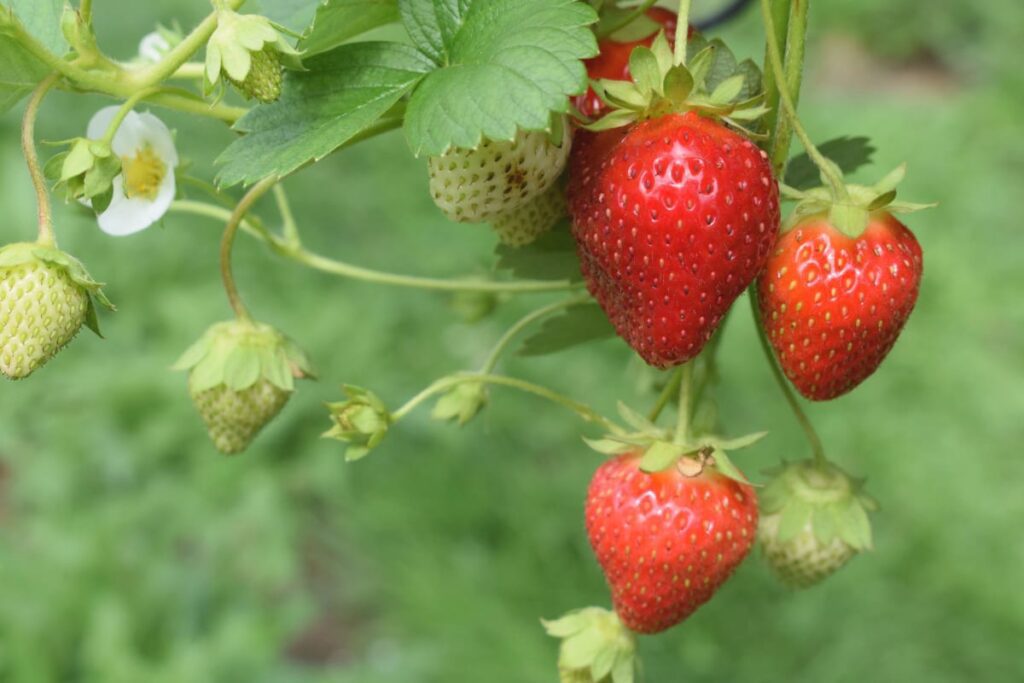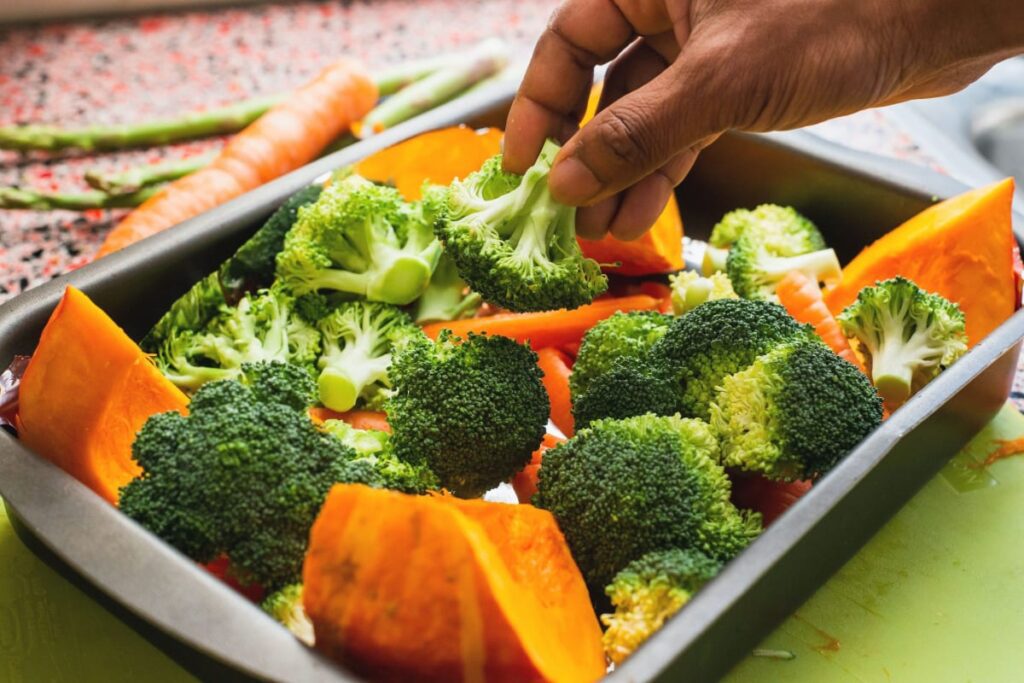Is organic food worth it? Are organic fruits and vegetables really worth it? As a Certified Clinical Nutritionist I get asked this all the time.
The answer?
Yes, eat organic vs non-organic as much as possible!
But it isn’t always feasible from a cost or availability standpoint. Since you might not always be able to buy the organic versions of everything, you definitely want to avoid the top 12 pesticide-containing fruits and vegetables.
I do my best, but the last time I went to the store, I couldn’t remember what they were! Plus, it changes every year. So I grabbed some organic zucchini and I went home to look up the current “Dirty Dozen” (courtesy of the Environmental Working Group which includes scientists, researchers and policy makers who look at the scientific data).
Here’s their latest list of the 12 fruits and vegetables with the most pesticide residues. Bookmark or screenshot this and keep it in your favorite images so you can quickly check next time you’re shopping and make the decision of organic vs non-organic based on science.
High Pesticide Residues
- Strawberries
- Spinach
- Kale, collard & mustard greens
- Nectarines
- Apples
- Grapes
- Cherries
- Peaches
- Pears
- Bell and hot peppers
- Celery
- Tomatoes
Strawberries have topped the list of high pesticide residues for years.
Bummer!! Who doesn’t love this sweet summer treat.
In the U.S., we consume 8 pounds of strawberries each year.
In 2014 and 2015 the US Department of Agriculture tested strawberries. They contained an average of 7.7 different pesticides per sample compared to 2.3 pesticides per sample for all other produce. Growers used fumigant gases to sterilize the fields before planting. And some of those gases are now banned in warfare by the Geneva Convention. Yikes! Nowadays, methyl bromide is no longer used (it phased out in 2016) but strawberries still make the list of pesticide-bearing fruits, year after year.

Kale, collard and mustard greens are new on the list this year. That’s not good news for those people who love their green smoothies. You enjoy those for a big boost of nutrients, not pesticides! And don’t replace it with spinach, that’s even higher on the list. Use organic greens for your smoothies (and remember, don’t add a bunch of sugar or juice!).
Some of these pesticides are benign. But some have been linked to cancer, reproductive and developmental damage, hormone disruption and neurological problems. It just isn’t worth the risk.
Invest your money in purchasing organic food versions of these “Dirty Dozen.” It is for your own health and the health of your family!
So what fruits and vegetables can you save money and buy non-organic if necessary?
There are fruits and vegetables that have very little, if any, pesticide residues. The Environmental Working Group calls them the “Clean 15″ and there are some yummy favorites on the list!
Meaning that if you don’t buy organic, it is okay. In this world where we need to be mindful of how we spend our grocery dollars, this is fantastic news!
The USDA tests these items by using a high-powered pressure water system to clean the items, then check for pesticide residue. The following is the most current list of food which you can purchase with peace of mind knowing you are not poisoning your family!
Low to No Pesticides
- Avocados
- Sweet corn
- Pineapples
- Onions
- Papayas
- Sweet peas, frozen
- Eggplant
- Asparagus
- Broccoli
- Cabbage
- Kiwi
- Cauliflower
- Mushrooms
- Honeydew melon
- Cantaloupe
There are some nutritionally powerful items on this list. Broccoli for example, is an excellent source of vitamin C with 89 mg per 100 grams. Just one-half cup of steamed broccoli provides 57% of your daily value for vitamin C. I’m a huge fan of the therapeutic use of vitamin C!

Mushrooms are new to the list and that’s wonderful news too. Mushrooms are excellent immune boosters. Just read the labels because there are many varieties grown under different conditions.
Some sweet corn and papayas grown in the US are produced from genetically modified seeds. Be sure to err on the side of safety and buy organic unless you have verification that they are not GMO foods!
Keep this Clean 15 list and the Dirty Dozen list handy so you can make your wise and thrifty organic food purchases next time you go to the grocery store.
.
Medical Disclaimer: The information provided in this article is for informational purposes only and has been compiled from years of practice, study and experience by Mikell Suzanne Parsons, DC. This information is NOT intended to be used as a substitute for the advice from your physician or any other health care provider, or any information contained in or on any product label or packaging. Do not use information in this article for diagnosing or treating any health problem or disease. Always speak to your health care provider before taking any nutritional, herbal, or homeopathic supplement. If you have or suspect that you have a health problem including COVID-19, contact your health care provider immediately. Do not ignore seeking health care advice or delay seeking care because of something that you have read in this article. Information provided in this article or on this website DOES NOT create a doctor-patient relationship between you and Mikell Suzanne Parsons, DC. Information and statements regarding dietary supplements have not been evaluated by the Food and Drug Administration and are not intended to diagnose, treat, cure, or prevent any disease.
